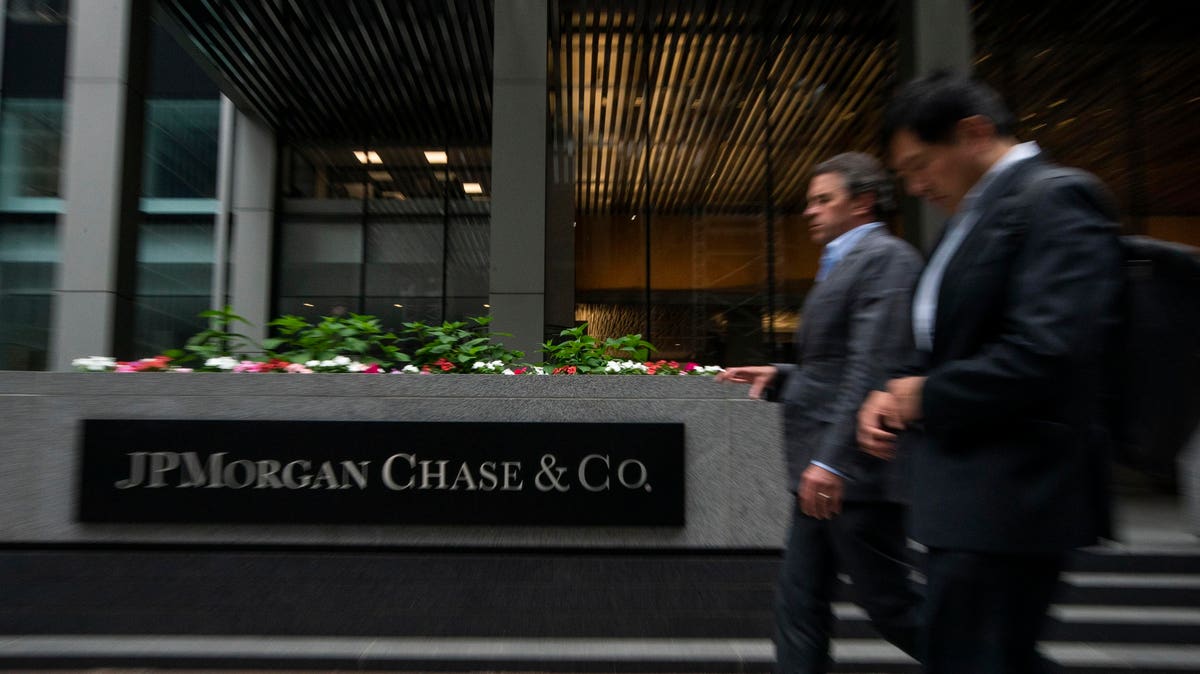Topline
Several large American banks smashed expectations in their quarterly earnings reports Friday, as the biggest names in the sector keep posting massive profits while smaller peers flail.
Key Facts
JPMorgan Chase, Citigroup and Wells Fargo each posted higher than expected revenue and profit figures during the second quarter, a stretch including fallout from three of the four largest bank failures in U.S. history.
Shares of JPMorgan, Citi and Wells Fargo—three of the four largest U.S. banks by assets—rose more than 1% apiece in early Friday trading.
Though high interest rates contributed greatly to other banks’ demise earlier this year, Citi, JPMorgan and Wells Fargo each received a boon to earnings from the elevated rates.
JPMorgan’s $21.9 billion in net interest income last quarter was 44% higher than the same timeframe last year, while Wells Fargo’s and Citi’s $13.2 billion and $13.9 billion in interest profits were 29% and 16% increases, respectively.
Tangent
State Street, the 12th-largest American bank by assets, also reported an 18% year-over-year rise in quarterly net interest income, though its stock slipped nearly 5% after it fell short on sales estimates. BlackRock, the world’s biggest asset management company, posted a 27% quarterly profit jump.
Key Background
Regional powerhouses Silicon Valley Bank and Signature Bank failed within 48 hours of each other in March, while First Republic went under in May and got absorbed into JPMorgan. Since early 2022, the Federal Reserve has raised interest rates from near 0% to 5%, allowing banks to see massive jumps in interest payments on new loans while also driving the value of longer-term debt down considerably. After collapsing amid major uncertainty in March, large bank stocks have mostly recovered to pre-crisis levels.
Contra
Despite the rosy headline earnings numbers, the CEOs of Citi, JPMorgan and Wells Fargo each cautioned about what the current macroeconomic situation could mean for their business. “Core inflation has been stubbornly high (increasing the risk that interest rates go higher, and stay higher for longer) [and] quantitative tightening of this scale has never occurred,” JPMorgan’s billionaire CEO Jamie Dimon said in a statement accompanying his company’s financial release, indicating that elevated interest rates are not a blindly good thing for banks.
Read the full article here



